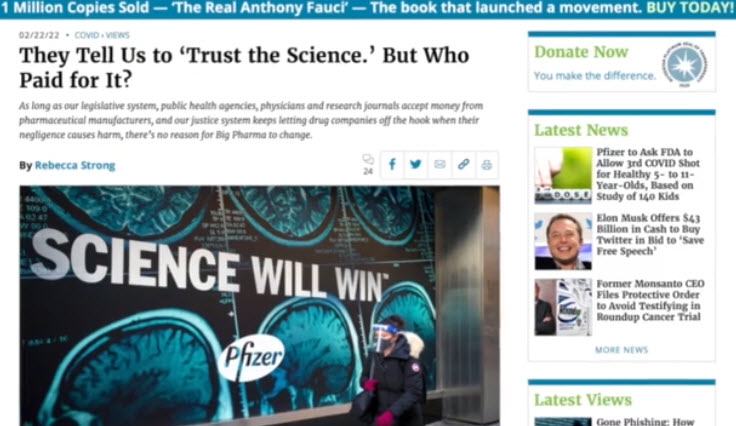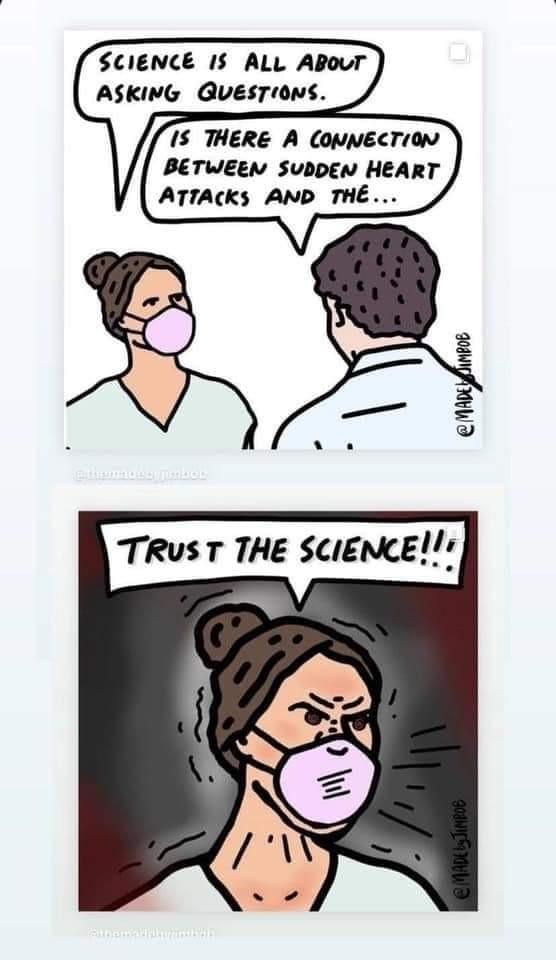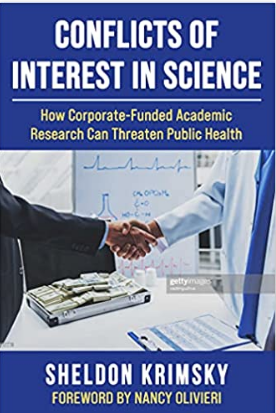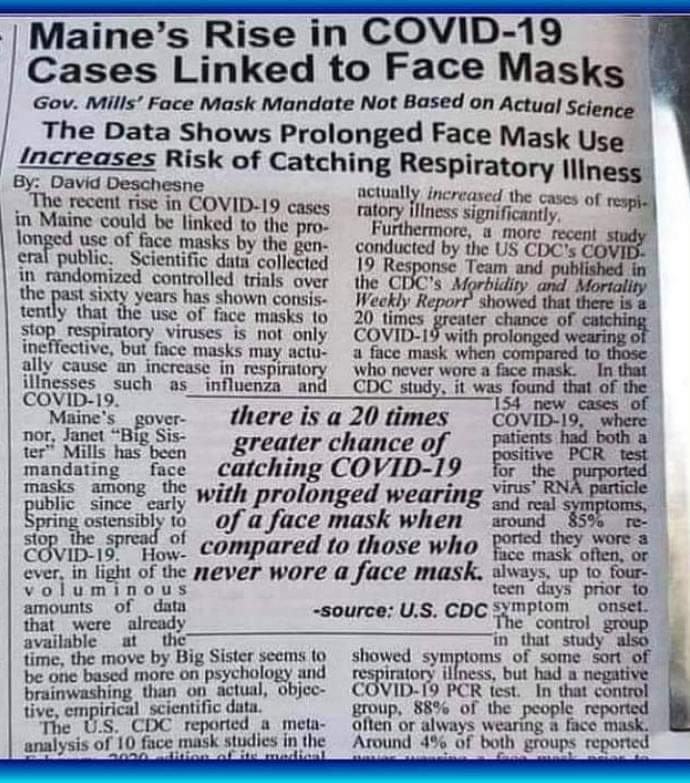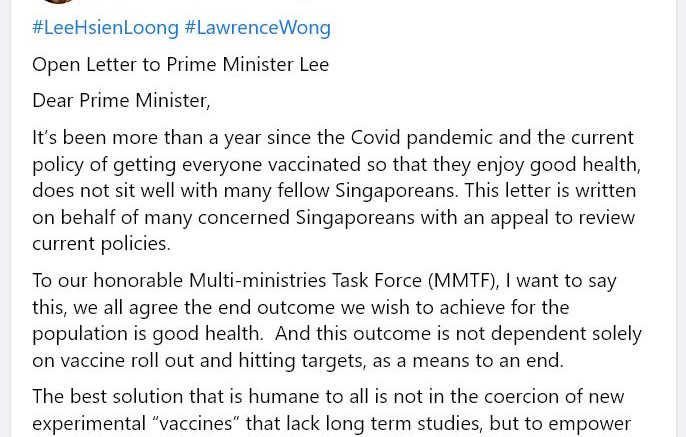Covid Skeptics MIT Study
MIT researchers ‘infiltrated’ a Covid skeptics community and found that skeptics place a high premium on data analysis and empiricism.
MIT researchers are shocked to find that the public bases their opinions on science – more so than public health officials, who “elide” over inconvenient studies that add to uncertainty. This is a truly remarkable study that indicts public health as non-science based.
They also concluded the opposite of what you’d expect – since the paper was trying to discredit the skeptics. Must be friends with the King of Data-Manipulation:
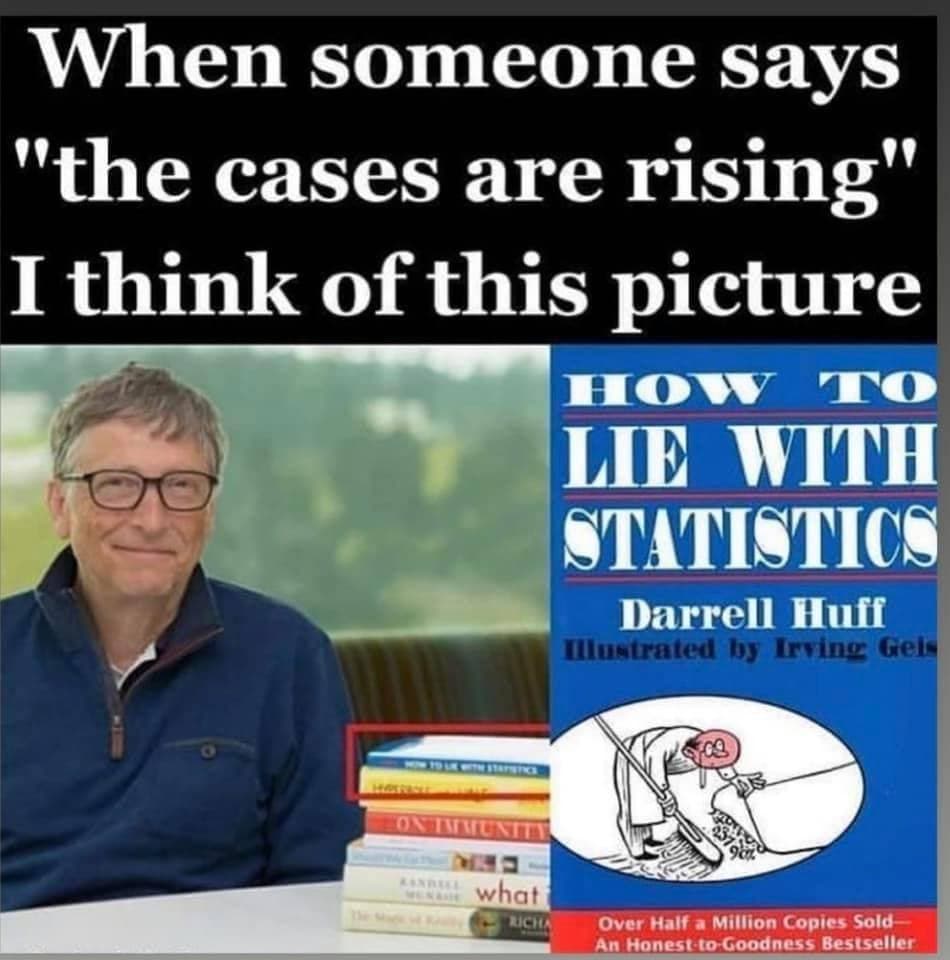

What has happened to education, science, critical thinking, and common sense?
From March to September 2020, a group of MIT researchers ‘infiltrated’ a Covid-19 skeptics community to study their methods, behavior, tools, and other social aspects.
Then they came out in Jan 2021 with a paper titled “Viral Visualizations: How Coronavirus Skeptics Use Orthodox Data Practices to Promote Unorthodox Science Online“.
When you start reading it, you say: “Oh look, these guys got it!” but then, when they start interpreting their findings and making some conclusions, it becomes bizarre, scary, sad, fascinating, and funny… all at the same time.
Some of their most interesting findings:
- “Skeptics place a high premium on data analysis and empiricism”.
- “Most fundamentally, the groups we studied believe that science is a process, and not an institution.”
- “Indeed, anti-maskers often reveal themselves to be more sophisticated in their understanding of how scientific knowledge is socially constructed than their ideological adversaries, who espouse naive realism about the “objective” truth of public health data.”
- “In other words, anti-maskers value unmediated access to information and privilege personal research and direct reading over “expert” interpretations.”
- “Its members value individual initiative and ingenuity, trusting scientific analysis only insofar as they can replicate it themselves by accessing and manipulating the data firsthand.”
- “They are highly reflexive about the inherently biased nature of any analysis and resent what they view as the arrogant self-righteousness of scientific elites.”
- “Many of the users believe that the most important metrics are missing from government-released data.”
- “One user wrote: ‘Coding data is a big deal—and those definitions should be offered transparently by every state. Without a national guideline—we are left with this mess’.”
- “The lack of transparency within these data collection systems—which many of these users infer as a lack of honesty—erodes these users’ trust within both government institutions and the datasets they release.”
- “In fact, there are multiple threads every week where users debate how representative the data are of the population given the increased rate of testing across many states.”
- “These groups argue that the conflation of asymptomatic and symptomatic cases, therefore, makes it difficult for anyone to actually determine the severity of the pandemic.”
- “For these anti-mask users, their approach to the pandemic is grounded in more scientific rigor, not less.”
- “These individuals as a whole are extremely willing to help others who have trouble interpreting graphs with multiple forms of clarification: by helping people find the original sources so that they can replicate the analysis themselves, by referencing other reputable studies… that come to the same conclusions, by reminding others to remain vigilant about the limitations of the data, and by answering questions about the implications of a specific graph.”
- “While these groups highly value scientific expertise, they also see collective analysis of data as a way to bring communities together within a time of crisis, and being able to transparently and dispassionately analyze the data is crucial for democratic governance.”
- “In fact, the explicit motivation for many of these followers is to find information so that they can make the best decisions for their families—and by extension, for the communities around them.”
- “The message that runs through these threads is unequivocal: that data is the only way to set fear-bound politicians straight, and using better data is a surefire way towards creating a safer community.”
- “Data literacy is a quintessential criterion for membership within the community they have created.”
- “Arguing anti-maskers need more scientific literacy is to characterize their approach as uninformed & inexplicably extreme. This study shows the opposite: they are deeply invested in forms of critique & knowledge production they recognize as markers of scientific expertise”
- “We argue that anti-maskers’ deep story draws from similar wells of resentment, but adds a particular emphasis on the usurpation of scientific knowledge by a paternalistic, condescending elite that expects intellectual subservience rather than critical thinking from the public.”
And yet in the conclusion, they lament “the skeptical impulse that the ‘science simply isn’t settled,’ prompting people to simply ‘think for themselves” to horrifying ends.”
Then, they compare it to the January 6 Capitol riot.
…
Bizarre and fascinating.
Covid skeptics are smart and sophisticated. …and ALARMING!
Amazing paper.
~ MIT researchers study us Covid skeptics
~ they find we’re actually smart, doing sophisticated analyses
~ they see that we understand there is no “The Science” — science is a process through free enquiry and expression
~ they conclude we’re super dangerous!
Utterly fascinating to watch as the authors struggle mightily to hold onto their own narrative, where they have all their acquired reputation.
“Most fundamentally, the groups we studied believe that science is a process, and not an institution.”
“Indeed, anti-maskers often reveal themselves to be more sophisticated in their understanding of how scientific knowledge is socially constructed than their ideological adversaries, who espouse naïve realism about the “objective” truth of public health data.”
@commieleejones
Clusters included groups like the “American media community” or “antimaskers.” The researchers found that antimask groups were creating and sharing data visualizations as much as, if not more than, other groups.
And those visualizations weren’t sloppy. “They are virtually indistinguishable from those shared by mainstream sources,” says Satyanarayan. “They are often just as polished as graphs you would expect to encounter in data journalism or public health dashboards.”
“It’s a very striking finding,” says Lee. “It shows that characterizing antimask groups as data-illiterate or not engaging with the data, is empirically false.”
SciTechDaily.com
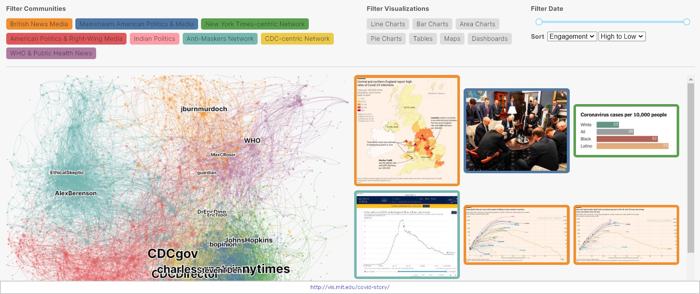
“In other words, anti-maskers value unmediated access to information and privilege personal research and direct reading over “expert” interpretations.”
“Its members value individual initiative and ingenuity, trusting scientific analysis only insofar as they can replicate it themselves by accessing and manipulating the data firsthand.”
@commieleejones
AKA “the scientific process”:
Science is a methodology, not a society. When you make it the latter, you make it a religion. Everyone can (and should!) learn from the world scientifically. Generate guesses, gather as much data as you can, then update your beliefs as new evidence withstands scrutiny.
— Nick Williams (@netripy) May 11, 2021
Science is a methodology, not a society. When you make it the latter, you make it a religion. Everyone can (and should!) learn from the world scientifically. Generate guesses, gather as much data as you can, then update your beliefs as new evidence withstands scrutiny.
“They are highly reflexive about the inherently biased nature of any analysis, and resent what they view as the arrogant self-righteousness of scientific elites.“
“Many of the users believe that the most important metrics are missing from government-released data.” “One user wrote: ‘Coding data is a big deal—and those definitions should be offered transparently by every state. Without a national guideline—we are left with this mess’.“
“The lack of transparency within these data collection systems—which many of these users infer as a lack of honesty—erodes these users’ trust within both government institutions and the datasets they release.“
“In fact, there are multiple threads every week where users debate how representative the data are of the population given the increased rate of testing across many states.“
“These groups argue that the conflation of asymptomatic and symptomatic cases therefore makes it difficult for anyone to actually determine the severity of the pandemic.“
“For these anti-mask users, their approach to the pandemic is grounded in more scientific rigor, not less.“
@commieleejones
This paper is absolutely wild.
— KelinciHutan 🇺🇲 🇦🇲 🇮🇩 (@KelinciHutan) May 11, 2021
“We studied why people reject masks and lockdowns, discovered that they are scientifically literate and engage in intelligent deep-data analysis. This is terrifying, because it means we can’t scare them into compliance like we can other groups.”
This paper is absolutely wild. (Paraphrasing): “We studied why people reject masks and lockdowns, discovered that they are scientifically literate and engage in intelligent deep-data analysis. This is terrifying, because it means we can’t scare them into compliance like we can other groups.“
“These individuals as a whole are extremely willing to help others who have trouble interpreting graphs with multiple forms of clarification: by helping people find the original sources so that they can replicate the analysis themselves, by referencing other reputable studies… that come to the same conclusions, by reminding others to remain vigilant about the limitations of the data, and by answering questions about the implications of a specific graph.“
“While these groups highly value scientific expertise, they also see collective analysis of data as a way to bring communities together within a time of crisis, and being able to transparently and dispassionately analyze the data is crucial for democratic governance.“
“In fact, the explicit motivation for many of these followers is to find information so that they can make the best decisions for their families—and by extension, for the communities around them.“
“The message that runs through these threads is unequivocal: that data is the only way to set fear-bound politicians straight, and using better data is a surefire way towards creating a safer community.“
@commieleejones
This paper is wild af. We have witnessed the death of the scientific method. pic.twitter.com/sTbDYhcH0F
— Rayen (@rayengroves) May 11, 2021
This paper is wild af. We have witnessed the death of the scientific method.
“Data literacy is a quintessential criterion for membership within the community they have created.“
“Arguing anti-maskers need more scientific literacy is to characterize their approach as uninformed & inexplicably extreme. This study shows the opposite: they are deeply invested in forms of critique & knowledge production they recognize as markers of scientific expertise“
“We argue that anti-maskers’ deep story draws from similar wells of resentment, but adds a particular emphasis on the usurpation of scientific knowledge by a paternalistic, condescending elite that expects intellectual subservience rather than critical thinking from the public.“
And yet in the conclusion they lament “the skeptical impulse that the ‘science simply isn’t settled,’ prompting people to simply ‘think for themselves” to horrifying ends.” They then compare it to the January 6 Capitol riot. Bizarre and fascinating document.
@commieleejones
MIT researchers are shocked to find that the public bases their opinions on science – more so than public health officials, who “elide” over inconvenient studies that add to uncertainty. This is a truly remarkable study that indicts public health as non-science based.
— James Lyons-Weiler (@lifebiomedguru) May 15, 2021
One could say that both the anti-maskers and the MIT researchers are engaging in propaganda, anxious to present only evidence favorable to their side. But in another sense, one could argue that they are only parroting the narrative promoted by the mainstream media and our politicians, while anti-maskers are actually approaching the data critically.
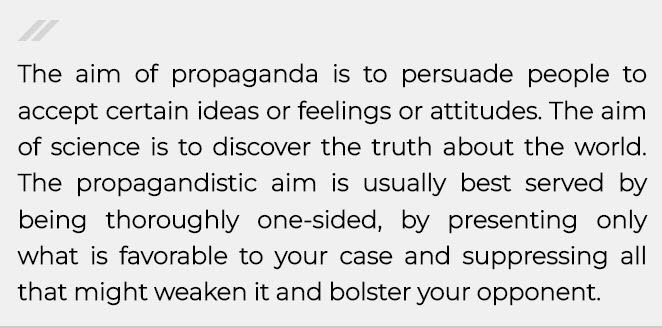
Burnham expands upon this thought by noting, “In the case of any hypothesis which is under consideration, science, in contrast to propaganda, is always anxious to present all the evidence, for and against. The scientific aim is just as well served by proving a hypothesis false as by proving it true.”
Given these facts, why is it that nearly every media source, politician, and even the average Joe is so eager to squelch “unorthodox” opinions like those explored in this MIT paper? If they refuse to allow their hypotheses to be tested, then they are the ones who are truly anti-science.
~ Annie Holmquist “MIT Researchers Admit Anti-Maskers Are More Scientifically Rigorous“
For more technical details about this study or in case you want to explore the data by yourself, check the interactive website designed by the authors for that purpose. Also, you can find below a short video of the idea behind this project:
- MIT Study: “Viral Visualizations: How Coronavirus Skeptics Use Orthodox Data Practices to Promote Unorthodox Science Online” (01)
- MIT Video on Study: Viral Visualizations: How Coronavirus Skeptics Use Orthodox Data Practices to Promote Unorthodox… (02)
- MIT Interactive Website: “The Data Visualizations Behind COVID-19 Skepticism” (03)
- Download PDF: EuropePMC | ARXIV (04) (05)
- @commieleejones Twitter Thread, May 10, 2021 ThreadReader Copy (06)
- scitechdaily.com Data Visualizations: When More COVID-19 Data Doesn’t Equal More Understanding (07)
- LinkedIn Study authors “Viral visualizations behind COVID-19 skepticism” (08)
- LinkedIn Post about Study “What has happened to education, science, critical thinking, and common sense?” (09)
- Dr Mark Changizi “Covid Skeptics are Smart and Sophisticated… and Alarming!” (10)
- Annie Holmquist “MIT Researchers Admit Anti-Maskers Are More Scientifically Rigorous” (11)
The “Experts” that we are told to listen to, lie.

Site Notifications/Chat:
- Telegram Post Updates @JourneyToABetterLife (channel)
- Telegram Chatroom @JourneyBetterLifeCHAT (say hi / share info)
- Gettr Post Updates @chesaus (like fakebook)
Videos:
References




